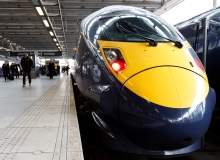
The government has failed to make a convincing economic case for HS2, concluded the House of Lords Economic Affairs Select Committee in a report published on Wednesday.
Evidence gathered by the Committee disputes both the financial reasoning behind the project and its two main objectives: increased capacity on the railway system and rebalancing the economy.
Tackling issues such as the overall cost, the report urges the government to reconsider the feasibility of HS2 and its impact on British economy. It also suggests better investment alternatives.
“At £50bn, HS2 will be one of the most expensive infrastructure projects ever undertaken in the UK but the Government have not yet made a convincing case for why it is necessary,” commented Lord Hollick, Chairman of the House of Lords Economic Affairs Committee.
The cost of construction per mile of HS2 is up to nine times higher than the cost of constructing France’s entire high-speed line. Despite robust reasons such as higher density in population and the need for extensive tunnelling work, the report concludes that significant changes are required to even costs.
For example the Committee has suggested that the cost could be brought down by reducing the trains’ speed from 250mph to 200mph, at no significant detriment to journey times.
“It is vital that we get on board the high-speed revolution.” Those were the words of UK Prime Minister David Cameronin Jan 2013
The public will once again hold the burden of the project, despite the government’s declaration of making rail less dependent on public subsidy. Although £31.5bn will be funded by taxpayers, it is business travellers who are expected to benefit the most, with more than 70% of commuters forecast to be workers. To redeem the taxpayer the Committee looked at suggestions that business travellers carry more of the cost, by paying higher ticket prices.
Committee: forecasts are inconsistent and out-of-date
Doubts have also been cast on the long-term economic viability of HS2. According to a cost-benefit analysis, “84% of the estimated benefits of the HS2 rely on forecasts which are inconsistent and out-of-date”, with core materials as old as 1994.
Data on railway usage showed no evidence of overcrowding on existent lines, even at peak times, debunking the primary reasoning that the project is needed for increased capacity. Evidence showed that trains arriving and departing from Euston are just 43% full on average, and only between 50 and 60% full during peak times. Precise statistics have not been made available by the government on the base of “commercial sensitivity”, which prompted Lord Hollick to demand “full transparency”.
“The government have not carried out a proper assessment of whether alternative ways of increasing capacity are more cost effective than HS2,” he said in a statement on the report.
“In terms of rebalancing, London is likely to be the main beneficiary from the HS2. Investment in improving rail links in the North of England might deliver much greater economic benefit at a fraction of the cost of HS2”.
“The Committee are supportive of investment in rail infrastructure, but we are not convinced that HS2 as currently proposed is the best way to deliver that investment,” Lord Hollick said.



